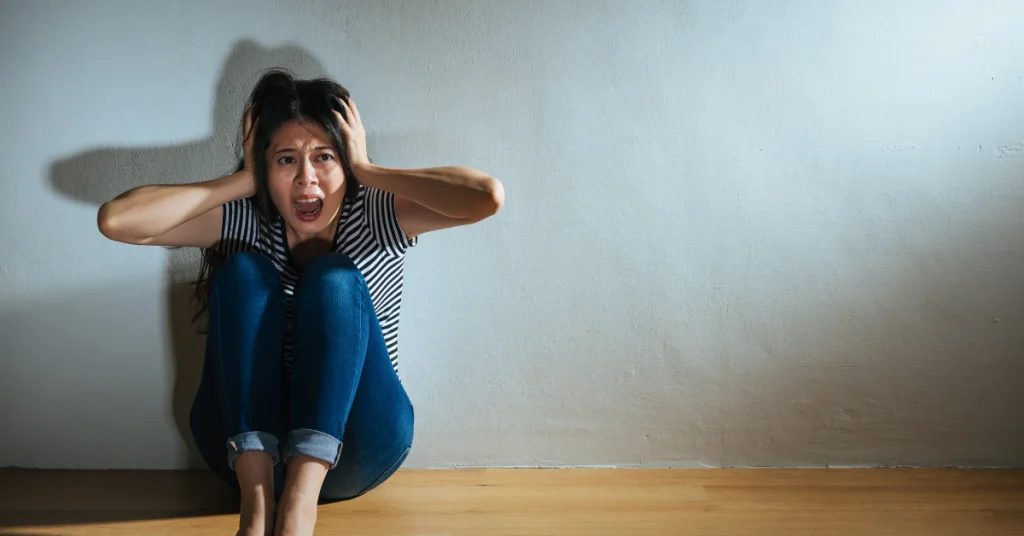Emotional abuse is a serious issue that often goes undetected. It can be hard to identify because there are no physical bruises or scars. Emotional abuse can leave you feeling broken and shattered as if your very soul has been ripped out. In this blog post, we will discuss the signs of emotional abuse, as well as the effects it can have on victims. If you think you may be in an abusive relationship, please seek help!
Contents
What is Emotional Abuse?
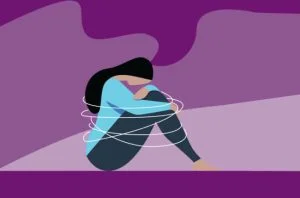 Emotional abuse is a form of abuse that is often overlooked. This type of abuse can be just as damaging as physical abuse, but it is not always easy to identify. Emotional abuse can involve verbal attacks, threats, intimidation, and manipulation. The abuser will often try to control the victim by making them feel unworthy or insignificant.
Emotional abuse is a form of abuse that is often overlooked. This type of abuse can be just as damaging as physical abuse, but it is not always easy to identify. Emotional abuse can involve verbal attacks, threats, intimidation, and manipulation. The abuser will often try to control the victim by making them feel unworthy or insignificant.
Emotional abuse can have a devastating impact on the victim’s self-esteem and can leave them feeling isolated and alone. The abuser may also use tactics such as gaslighting in order to make the victim doubt their own sanity.
This abuse can have a serious impact on the victim’s mental health and can lead to depression, anxiety, and post-traumatic stress disorder.
Types of Emotional Abuse

There are many types of emotional abuse as well. Some of these are:
Verbal Abuse
In this abuse, the abuser will use words to intentionally harm the victim. They may call them names, make insulting remarks, or threaten them. Sometimes the abuser will use sarcasm or irony to hurt the victim. In some cases, the abuser may even use silence as a form of abuse.
Emotional Manipulation
The abuser will often try to control the victim by manipulating their emotions. They may make them feel guilty, worthless, or ashamed. The abuser may also use threats and intimidation in order to get what they want.
Gaslighting
This is a tactic that is used to confuse and manipulate the victim. The abuser will make them doubt their own sanity by constantly denying things that happened or making up false stories.
Isolation
The abuser may try to isolate the victim from friends and family members. They may cut off access to support systems, financial resources, or transportation. This can leave the victim feeling alone and helpless.
Control
The abuser will often try to control the victim by manipulating them emotionally or psychologically. They may use threats, intimidation, or guilt trips in order to get what they want. The goal is to make the victim think that they cannot survive without the abuser.
Blame Games
This type of emotional abuse is where the abuser tries to shift the blame for their own actions onto the victim. They may say that it was the victim’s fault that they were hit, or that they deserved to be verbally attacked.
Threatening
This type also falls under emotional abuse. The abuser will use threats of violence, self-harm, or harm to the victim’s loved ones in order to control them.
Signs of Emotional Abuse
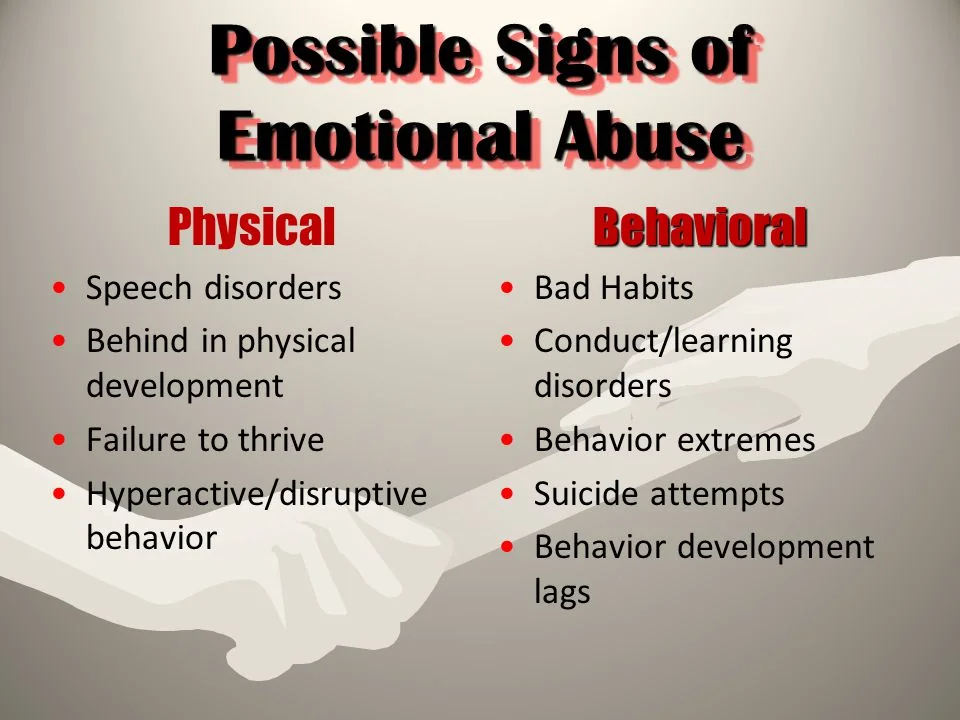
There are many signs of emotional abuse, but some of the most common include:
Constant Criticism
Sometimes when a person is emotionally abused, they’ll constantly be criticized by the person abusing them. This could involve anything from nitpicking to full-blown verbal assaults.
Isolation
The abuser may try to isolate the victim from their family and friends. They may also control who the victim can associate with, what they wear, and how they act. This isolates the victim and leaves them feeling alone and unsupported.
Manipulation
The abuser will often use tactics such as guilt trips or playing on sympathy in order to get what they want from the victim. They may also make threats or use intimidation in order to control their behavior. Sometimes the abuser will even deny that they are doing anything wrong, which can leave the victim feeling confused and uncertain.
Humilation
This sign also often goes hand-in-hand with criticism. The abuser may humiliate the victim in public or in private. This could involve making fun of them, calling them names, or embarrassing them in front of other people.
Making Fun
This sign is similar to humiliation, but it often happens when the abuser is alone with the victim. They may make fun of them, laugh at them, or ridicule them for their beliefs or actions.
Destroying Property
The abuser may damage or destroy the victim’s property as a way of punishing them. This could involve breaking things that belong to the victim, ruining their possessions, or even harming animals that are close to them.
Careless Behavior
This can also be a sign of emotional abuse. The abuser may exhibit careless behavior such as driving recklessly, engaging in risky activities, or spending money irresponsibly. This can cause the victim a great deal of stress and anxiety.
Anger
This can also be a sign of emotional abuse. The abuser may often fly into rages for no reason or become extremely angry over minor things. They may also use physical violence as a way to release their anger.
Absence In Relationship
This can also be a sign of emotional abuse. The abuser may start to distance themselves from the victim or withdraw their love and support. This can leave the victim feeling confused and uncertain about the relationship.
Causes of Emotional Abuse
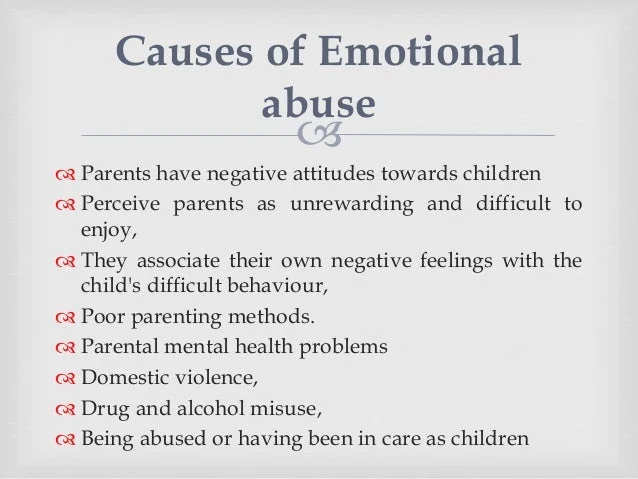
There can be many different causes of emotional abuse. Some of the most common include:
Battered Woman Syndrome
This is a condition that can often lead to emotional abuse. It is caused by prolonged exposure to physical and/or psychological violence. This can leave the victim feeling scared, helpless, and isolated.
Low Self-Esteem
If someone has low self-esteem, they may be more likely to be emotionally abused by someone else. The abuser will often target these individuals because they know that they are easier to control and manipulate.
Abuse in Childhood
People who have experienced abuse in childhood are also more likely to experience emotional abuse in their adult relationships. This could be due to the fact that they learned how to accept this type of behavior as a norm, or because they are attracted to abusive partners.
Addiction
If one partner is addicted to drugs or alcohol, it can often lead to emotional abuse. The addict will often use the addiction as an excuse for their bad behavior, and they may also become violent when they’re drunk or high.
Family Issues
This is another common cause of emotional abuse. If someone has a history of family issues such as divorce, death, or abandonment, they may be more likely to experience emotional abuse in their adult relationships.
Domestic Abuse
This cause can be split into two categories: emotional abuse and physical abuse. If someone is being physically abused, it is very likely that they will also experience emotional abuse. And vice versa; if someone is experiencing emotional abuse, there is a high chance that they will also be subjected to physical violence.
Prevalence of Emotional Abuse
Emotional abuse is incredibly prevalent, and it can happen in any type of relationship. Some studies have shown that up to 50% of all domestic violence cases involve emotional abuse. This means that millions of people are affected by this issue every year.
The abuser may damage or destroy the victim’s property as a way of punishing them. They may damage or destroy the victim’s property as a way of punishing them. The abuser may damage or destroy the victim’s property as a way of punishing them. The abuser may damage or destroy the victim’s property as a way of punishing them.
Approximately 50% of domestic violence cases involve emotional abuse. Sometimes, the abuser may start to distance themselves from the victim or withdraw their love and support. This can leave the victim feeling confused and uncertain about the relationship. The abuser may fly into rages for no reason or become extremely angry over minor things.
Negative Impacts of Emotional Abuse
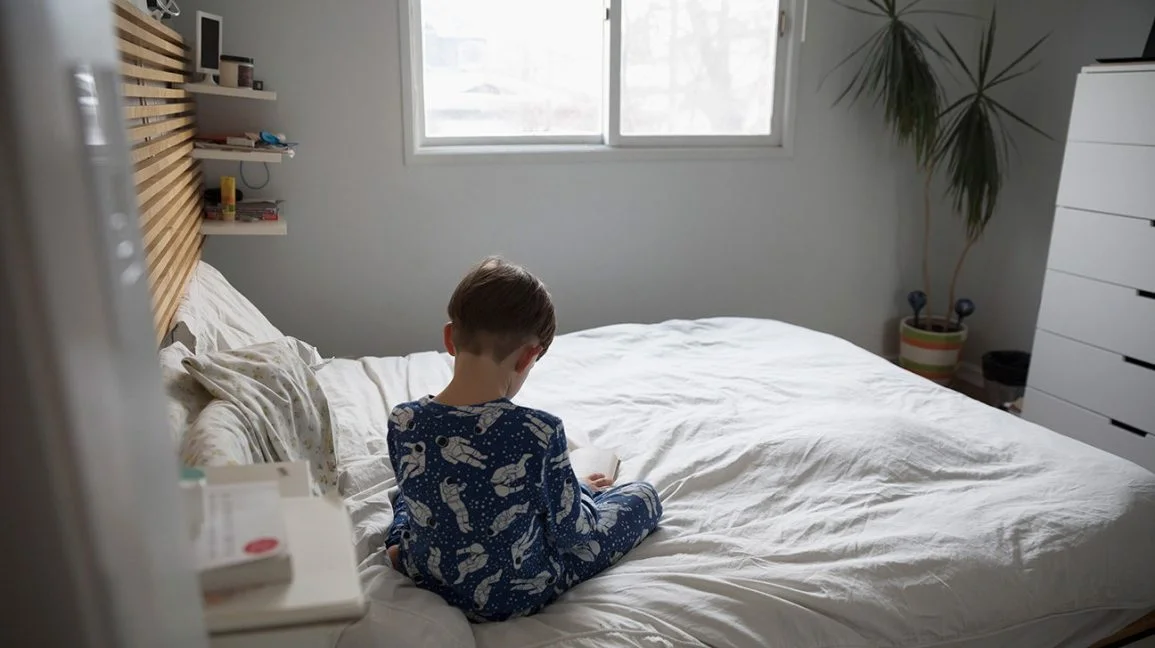
There can be many different negative impacts of emotional abuse. Some of the most common include:
Depression
If one suffers from emotional abuse, one is likely to develop depression. The abuser will often make the victim feel like it’s their fault, and this can lead to a sense of self-hatred and worthlessness.
Anxiety
The victim may start to experience anxiety as a result of the emotional abuse. They may feel constantly on edge, and they may find it difficult to relax or focus on anything else. This can lead to a deterioration in their mental health.
Trauma
Emotional abuse can often result in trauma for the victim. This is because it involves constant attacks on their emotional well-being, and it can leave them feeling scared and isolated. Trauma can have a long-term impact on someone’s mental health.
Helplessness
When someone is being emotionally abused, they often feel helpless and unable to escape the situation. This is because the abuser will often use threats, intimidation, and manipulation to keep them trapped.
Do Men Face Emotional Abuse?
Despite the fact that it is typically thought of as a women’s issue, emotional abuse can also affect men. Men may be less likely to report emotional abuse due to the stigma attached to it, or because they feel like they should be able to handle it on their own.
Emotional abuse can have a wide range of negative impacts on the victim, including depression, anxiety, trauma, and helplessness. It can also lead to physical violence in domestic relationships. Despite this, emotional abuse is a less serious form of violence. This needs to change if we want to effectively address this issue.
How To Deal With Emotional Abuse?
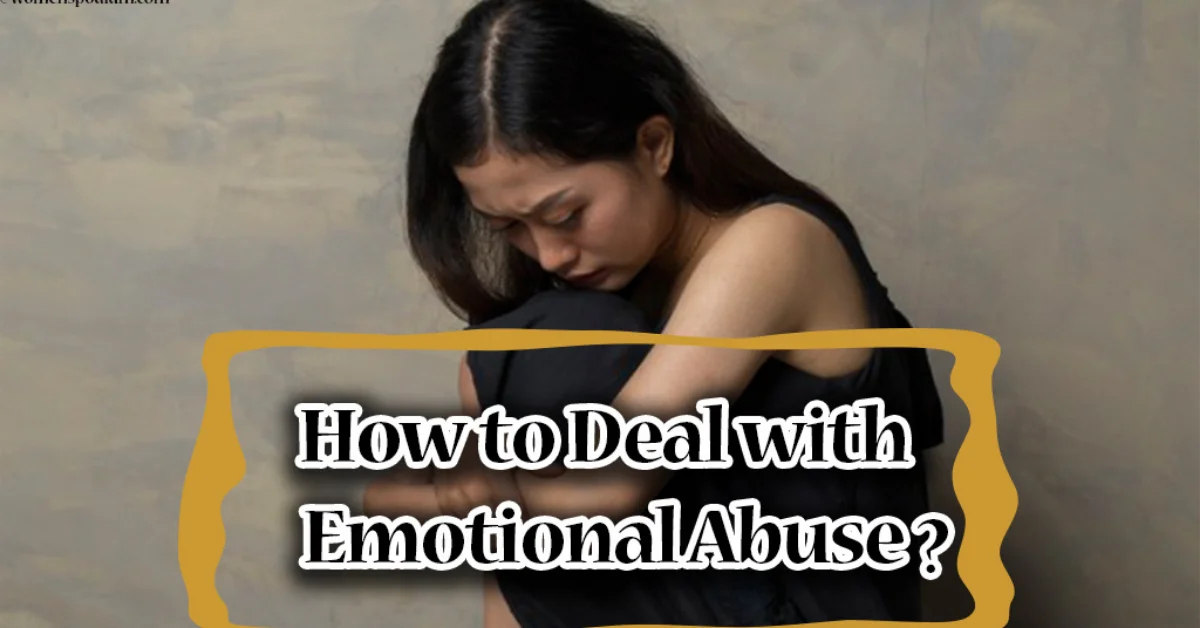
There are many different ways that someone can deal with this abuse. The most important thing is to have a support system in place, whether that be friends, family, or a therapist. Some of these are:
Try To Be Strong
It can be very difficult to break free from an emotionally abusive relationship, but it is important to try to be strong. The abuser will often try to wear the victim down, so it is crucial that you don’t give them the satisfaction.
Talk To Someone You Trust
Talking about what’s going on can be really helpful in terms of gaining some perspective. It can also help you to process these feelings and start to work through them.
Seek Professional Help
If you find that you are struggling to cope with emotional abuse on your own, then it might be a good idea to seek professional help. A therapist can provide you with support and guidance as you work through this situation.
Make Sure You Have A Safety Plan
If you feel like you are in danger, it is important to have a safety plan in place. This might include having a friend or family member you can go to if things get bad, or having a safe place to go if the abuser starts to become violent.
Know Your Rights
It is also important to be aware of your rights in an emotionally abusive relationship. You have the right to be safe and to feel respected. You also have the right to end the relationship if you no longer feel comfortable in it.
Conclusion
In conclusion, emotional abuse can have a wide range of negative impacts on the victim. It is important to have a support system in place if you are experiencing this abuse, and it is also crucial to know your rights. You deserve to be safe and respected.
A Word From Therapy Mantra
Your mental health — your psychological, emotional, and social well-being — has an impact on every aspect of your life. Positive mental health essentially allows you to effectively deal with life’s everyday challenges.
Also, at Therapy Care, we have a team of therapists who provide affordable online therapy to assist you with issues such as depression, anxiety, stress, relationship, OCD, LGBTQ, and PTSD. You can take our mental health test. You can also book a free therapy or download our free Android or iOS app.
